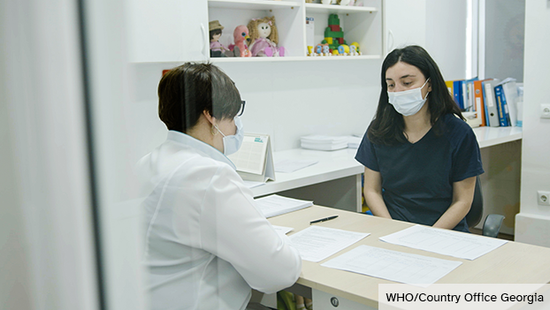
This course is the third course in a five-course series. It introduces you to the management of people who have suffered or are suspected to have suffered from intimate partner violence (IPV). It describes how to recognize and manage intimate partner violence.
Idioma: English
Información del curso
Course overview:
Intimate partner violence (IPV) is one of the most common forms of violence against women. It includes physically, sexually, and emotionally abusive acts, and controlling behaviour by an intimate partner or ex-partner. The course describes how to recognize and manage intimate partner violence and is intended for qualified healthcare providers administering services to survivors of rape and intimate partner violence in humanitarian emergencies. It considers available resources, materials, and drugs, and national policies and procedures.
This course is the third course in a five-course series. We recommend to first complete the first two courses
- Introduction to the clinical management of rape and intimate partner violence in humanitarian settings
- Mental health and psychosocial support: Clinical management of rape and intimate partner violence in humanitarian settings
The course is comprised of videos, presentations, case studies, and quizzes. It focuses on knowledge and skill-building.
Course duration: Approximately one hour.
Lo que aprenderá
- Explain what is meant by intimate partner violence.
- Describe the signs of intimate partner violence, regardless of how the patient presents.
- Describe the support available for people experiencing intimate partner violence.
- Describe how to identify if a patient is at immediate risk for intimate partner violence.
- Explain how direct and indirect questions can be used to support a patient who is or is suspected of being a survivor of intimate partner violence.
- Explain how to have a safe and supportive conversation with a person who has suffered or is suspected to have suffered from intimate partner violence, including use of appropriate language, and consideration of the local context.
- Describe how to refer patients to other health care providers and community services.
- Explain how to obtain and respect clear and informed consent before treating a patient or documenting their visit.
- Describe how to document a patient’s visit and the procedures used to protect patient confidentiality.
A quién se dirige este curso
- The primary audience for this program is qualified health care providers (e.g. health coordinators, medical doctors, clinical officers, midwives, and nurses) administering services to survivors of rape and intimate partner violence in humanitarian emergencies.
Matricularme en este curso
Requisitos para el certificado
- Obtenga un certificado de estudios al obtener más del 80% del número máximo de puntos de todos los trabajos evaluados.
- Obtenga una confirmación de participación al completar al menos el 80% del material del curso.
- Obtenga una insignia digitale abierta al completar el curso.